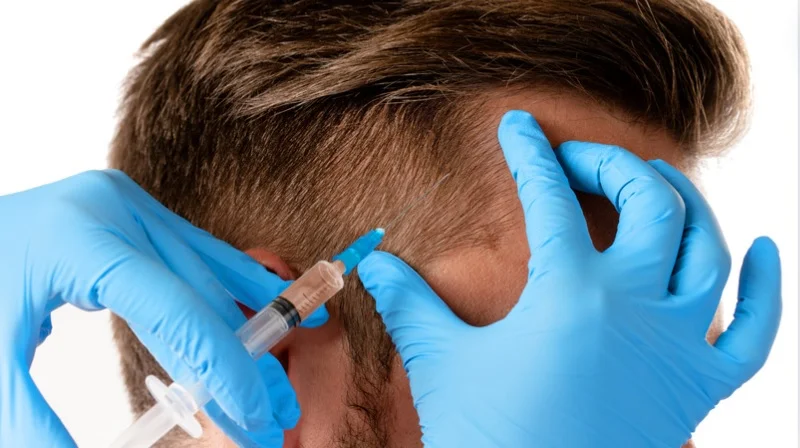Hair loss treatments vary widely, with each offering distinct advantages and limitations. Among the most common options are minoxidil, finasteride, and natural remedies. Understanding how these treatments compare can help you make an informed decision about the best approach for your hair loss concerns.
Minoxidil: A Topical Solution
Minoxidil is a widely used topical treatment that promotes hair growth. Available over the counter, it is applied directly to the scalp. This medication works by improving blood flow to hair follicles, stimulating growth in areas where hair has thinned. Clinical studies, including those reviewed by Dr. Epameinondas Bonaros, have demonstrated its effectiveness in both men and women. However, continuous use is necessary to maintain results, and some users may experience side effects such as scalp irritation or unwanted facial hair growth.
Finasteride: A Prescription Medication
Finasteride is an oral prescription medication designed to combat hair loss by inhibiting the hormone dihydrotestosterone (DHT), which contributes to hair thinning. It is often prescribed for male pattern baldness and has been shown to be effective in promoting hair regrowth and slowing loss. Unlike minoxidil, finasteride requires a prescription and may have side effects, including sexual dysfunction and mood changes. Regular consultations with a healthcare provider are necessary to monitor its effects and manage any adverse reactions.
Natural Remedies: An Alternative Approach
Natural remedies offer a more holistic approach to hair loss. Popular options include essential oils, such as rosemary and peppermint, which are believed to improve circulation to the scalp and encourage hair growth. Additionally, a balanced diet rich in vitamins and minerals can support overall hair health. While some people report positive results, natural remedies generally lack the rigorous clinical evidence supporting their effectiveness compared to medications like minoxidil and finasteride. Users should also be cautious of potential allergic reactions or interactions with other treatments.
Comparing Effectiveness
When evaluating effectiveness, minoxidil and finasteride have substantial clinical backing. Minoxidil is suitable for both genders and is effective in various stages of hair loss. Finasteride, on the other hand, is typically prescribed for men and may provide more pronounced results, particularly in the early stages of hair loss. Natural remedies, while popular, often show mixed results and may not be as reliable or effective for everyone.
Side Effects and Considerations
Each treatment comes with potential side effects. Minoxidil users might face scalp irritation or unwanted hair growth, while finasteride users may experience sexual side effects or mood changes. Natural remedies generally have fewer reported side effects but can still cause allergies or interact with other medications. Consulting with a healthcare provider is advisable to discuss potential risks and choose a treatment that aligns with your health profile and preferences.
Cost and Accessibility
Minoxidil is readily available over the counter, making it a convenient and cost-effective option for many individuals. Finasteride requires a prescription, and ongoing use involves regular consultations, which can be more expensive. Natural remedies vary widely in cost, from inexpensive essential oils to more costly supplements. Assessing your budget and access to healthcare services can influence your choice of treatment.
Long-Term Results
For sustained hair growth, continuous use of minoxidil is required, and the same applies to finasteride for maintaining results. Natural remedies may offer slower or less predictable outcomes. Consistency is key with all treatments, and results can vary based on individual factors such as the extent of hair loss and adherence to the treatment regimen.
Conclusion
Choosing the right hair loss treatment involves weighing the benefits and drawbacks of each option. Minoxidil and finasteride offer clinically proven effectiveness, though they come with potential side effects. Natural remedies provide a more holistic approach but lack robust evidence of their efficacy. Consulting with a healthcare provider can help tailor a treatment plan that best suits your needs, ensuring a balanced approach to managing hair loss.
For more information click here.










Comments are closed.